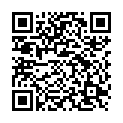|
|
|
| Module code: MBG21-20 |
|
|
- |
|
12 |
| Semester: 5 |
| Mandatory course: yes |
Language of instruction:
German |
Assessment:
Course work
[updated 15.11.2021]
|
MBG21-20 (S311-0190) Management and Professional Pedagogy in Health Care, Bachelor, ASPO 01.10.2021
, semester 5, mandatory course
|
|
The total student study time for this course is 360 hours.
|
Recommended prerequisites (modules):
None.
|
Recommended as prerequisite for:
|
Module coordinator:
Studienleitung |
Lecturer:
Alle Professoren und LfbA
[updated 12.10.2023]
|
Learning outcomes:
After successfully completing this module, students will have the following skills and competencies:
Knowledge and Comprehension:
Students will be able to familiarize themselves with a new work environment.
They will be able to explain the professional role(s) and areas of responsibility in their respective field of action.
They will be able to describe the organizational structure of the facility they spent time working at.
They will be able to present (orally) and document the entire internship process in the form of a practice report.
The Use, Application, and Generation of Knowledge:
Students will be able to apply their knowledge and skills to different (professional) fields of activity and health care institutions in order to test, reflect and evaluate problem-solving situations and processes.
They will be able to justify decisions made in the framework of their practical phase professionally and methodically.
Communication and Cooperation:
Students will be able to discuss findings with colleagues and in an interdisciplinary team.
They will be able to reflect upon and take into account the different views and perspectives of other stakeholders.
They will be able to present and defend the results/knowledge gained from their practical study phase to others.
Scientific Self-Concept/Professionalism:
Students will understand that they can make a contribution to solving socially relevant challenges through a project.
They will have discovered new career perspectives for themselves and have expanded their understanding of the profession.
[updated 15.11.2021]
|
Module content:
The contents and tasks in the practical study phase are based on the respective field of application and the opportunities and conditions found there.
During the practical study phase, students will explore the relevant field of work and work on an independent project.
Students will formulate work steps, methods, phases and intended solutions, as well as the expected results, process them during their internship, present them in an internshiinternship report, reflect on them and evaluate them with the colleagues supervising their internship on-location, their project supervisor and within the framework of their internship report (handout/oral presentation).
[updated 15.11.2021]
|
Recommended or required reading:
[still undocumented]
|

